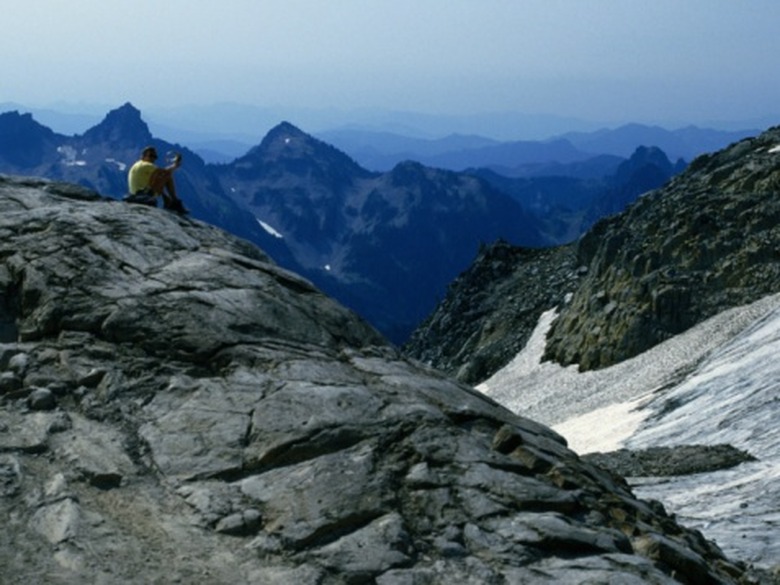List Four Causes Of Weathering
What are four causes of weathering? Weathering is the breakdown of rocks, and it is usually broken down into two general categories: physical and chemical weathering. Within those two categories, there are many specific causes of weathering of rocks. Freezing and thawing, acid rain, root wedging, and temperature and pressure changes are four examples of causes of weathering of rocks. Keep in mind that none of these forces act in a vacuum in the real world though – the weathering of rocks is often caused by a combination of factors.
Physical Causes of Weathering
Physical Causes of Weathering
Physical weathering of rocks causes them to be broken down into smaller fragments, but it does not change the chemical composition of the rocks. Temperature and pressure changes are often the underlying causes of physical weathering.
For example, one of the main types of physical weathering, freeze-thaw action, is caused by temperature changes. This type of weathering occurs when water or moisture seeps into the cracks or joints of rocks. When the air temperature drops below freezing, the water in the cracks also freezes, and water expands when it changes from liquid to solid.
The expansion of frozen water exerts pressure within the crack or joint, pushing it further apart. This can eventually lead to pieces of rock breaking off the main body of the rock.
Pressure and temperature changes can also cause the weathering of rocks even when water is not involved. Differential temperatures and pressures within rock outcrops can lead to exfoliation, a process that is also called onion-skin weathering because it leads to the outer layers of rocks falling off.
Chemical Causes of Weathering
Chemical Causes of Weathering
Strata(Sumner'>Chemical weathering/08%3A_Old_or_Lost_Pages/8.07%3A_Weathering_and_Erosion) affects the actual composition of rocks. Some rocks are more prone to chemical weathering because of the unstable minerals they contain, while those that are made up of stable minerals are more resistant to chemical alteration.
The process of chemical weathering involves chemical reactions between the minerals in rocks and the minerals in their environment. Minerals in the air and in precipitation can lead to the chemical weathering of rocks. A clear example of this phenomena is acid rain, which is precipitation with an unusually low pH. The chemicals in acid rain react with unstable minerals in some rocks, leading to the dissolution or alteration of the composition of the rocks.
Another common type of chemical weathering is oxidation, which is commonly called rusting. Oxidation occurs when unstable minerals in rocks are exposed to atmospheric oxygen; the oxygen interacts with chemicals in some rocks to cause the chemical alteration of the oxidized rocks.
The Synergy of Weathering
The Synergy of Weathering
It is often the case that the many causes of weathering of rocks work together, creating a synergy of forces that accelerate the breakdown of rocks. For example, the physical weathering of rocks caused by freeze-thaw action exposes more surface area, making rocks more susceptible to chemical weathering.
In other cases, biological factors work with chemical or physical forces to speed up the weathering of rocks. One example of this synergy is the interactions between plants and animals with the typical causes of weathering. When an animal digs a burrow and brings rocks to the surface of the Earth, this makes the rocks more vulnerable to both chemical and physical weathering. Or, when a rock joint expands due to changes in temperature and a tree takes root within the crack, biological and physical forces are working together to cause further weathering of the rock.
While the causes of weathering may be isolated in the controlled conditions of a lab, there are many uncontrollable variables in real-world conditions. The forces that break rocks down in the real world are often working together to increase the rate of weathering.
Cite This Article
MLA
Sloane, Christina. "List Four Causes Of Weathering" sciencing.com, https://www.sciencing.com/list-four-causes-weathering-8229932/. 1 December 2021.
APA
Sloane, Christina. (2021, December 1). List Four Causes Of Weathering. sciencing.com. Retrieved from https://www.sciencing.com/list-four-causes-weathering-8229932/
Chicago
Sloane, Christina. List Four Causes Of Weathering last modified August 30, 2022. https://www.sciencing.com/list-four-causes-weathering-8229932/
